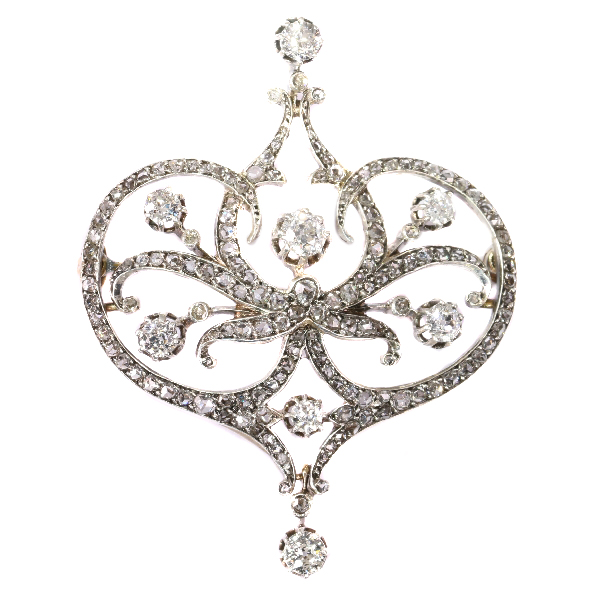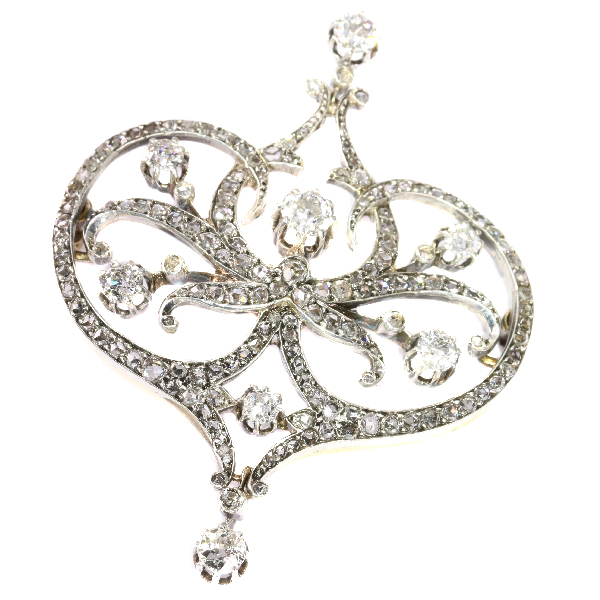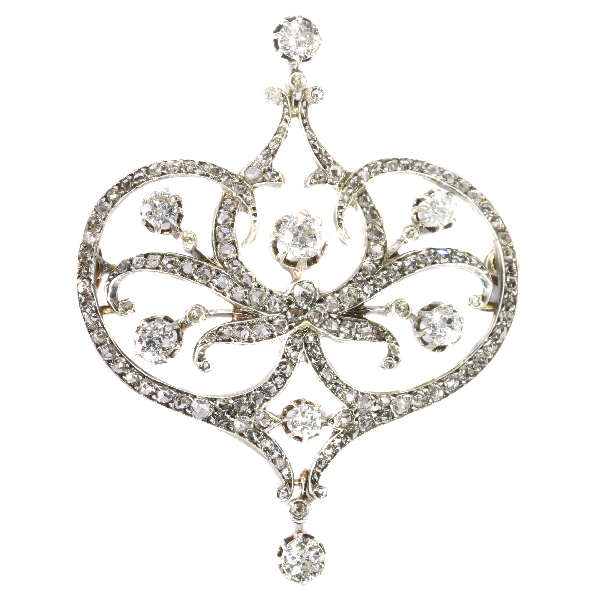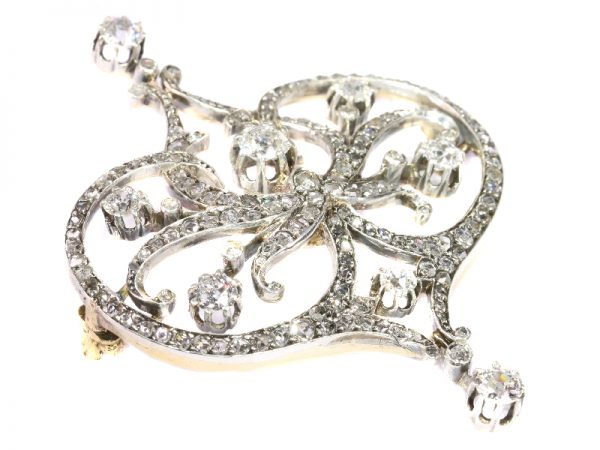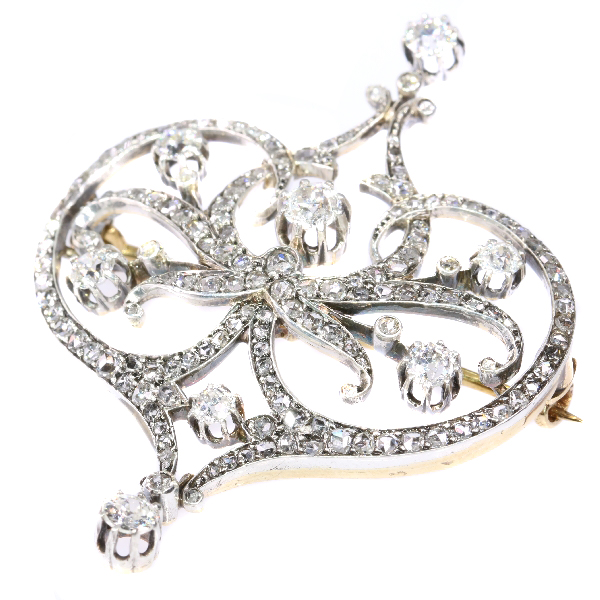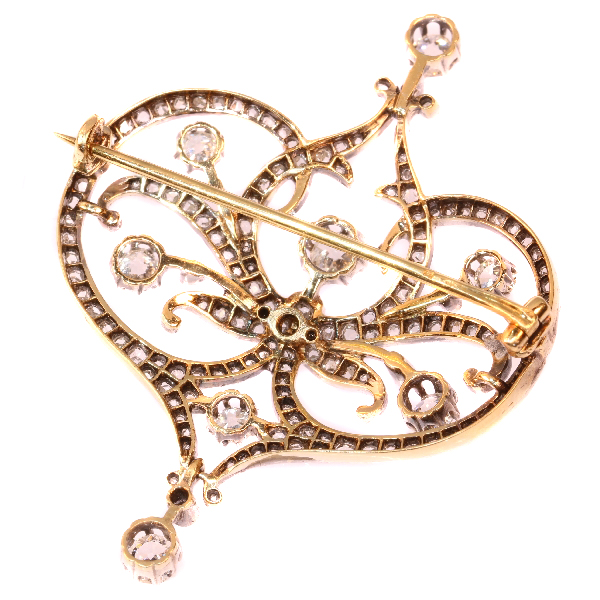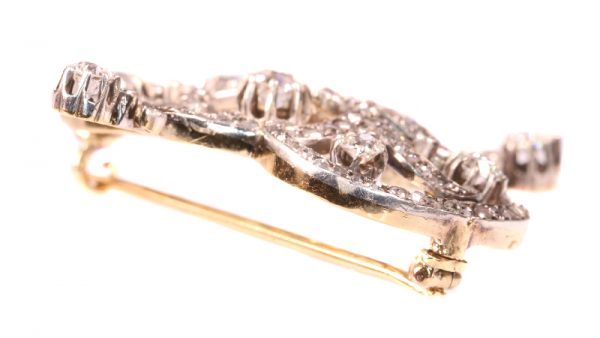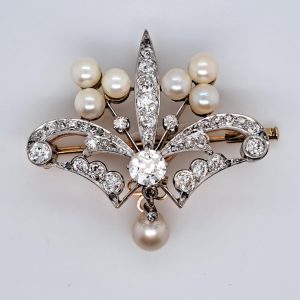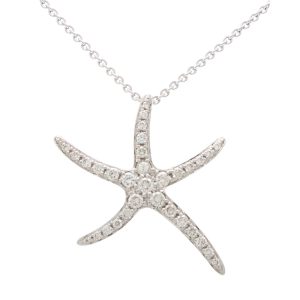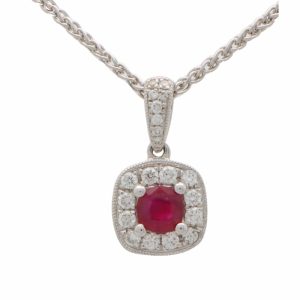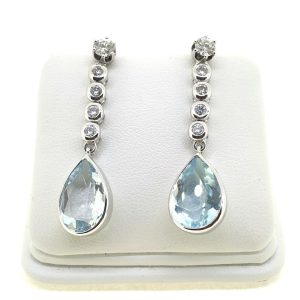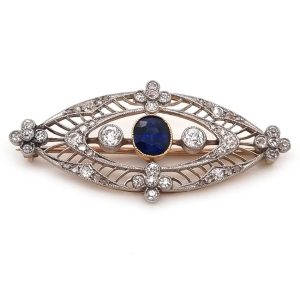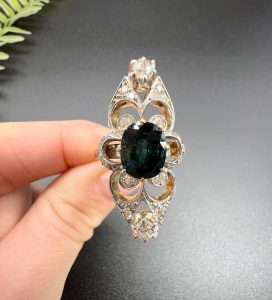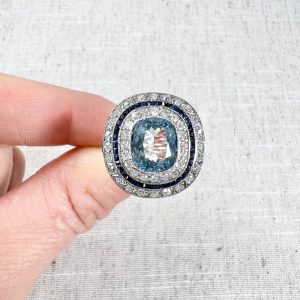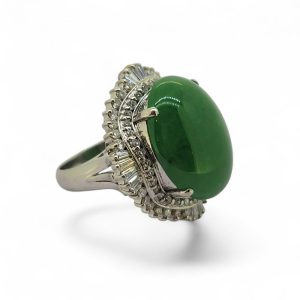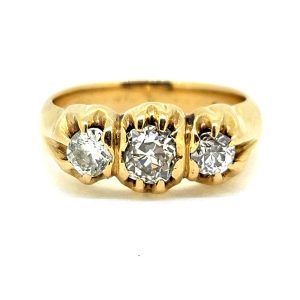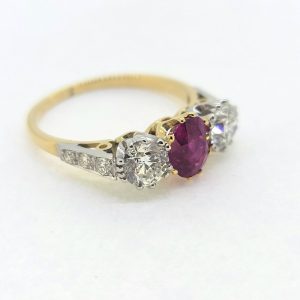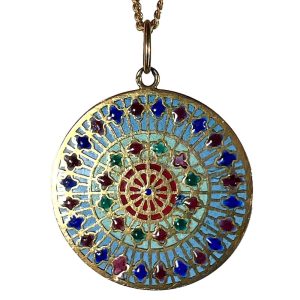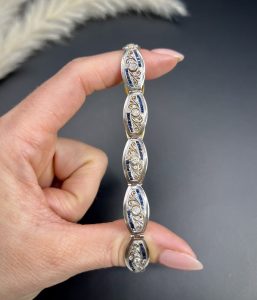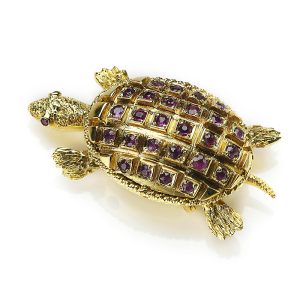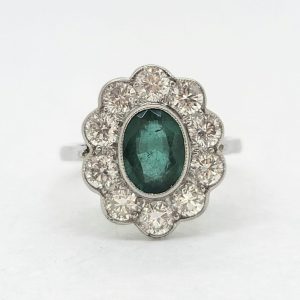Antique Belle Epoque Diamond Brooch, 18ct Gold
Antique jewellery object group: brooch
Condition: very good condition
Country of origin: Although it does not carry any legible control marks we believe this to be of Belgian origin.
Style: Belle √âpoque – The Belle √âpoque (French for “Beautiful Era”) was a period in European social history that began during the late 19th century and lasted until World War I. Occurring during the time of the French Third Republic and the German Empire, the “Belle √âpoque” was named in retrospect, when it began to be considered a “golden age” the major powers of Europe, new technologies improved lives and the commercial arts adapted Renaissance and eighteenth-century styles to modern forms. In the newly rich United States, emerging from the Panic of 1873, the comparable epoch was dubbed the Gilded Age. In the United Kingdom, this epoch overlaps the end of what is called the Victorian Era there and the period named the Edwardian Era.
Style specifics: The Belle √âpoque (French for “Beautiful Era”) was a period in European social history that began during the late 19th century from the Franco-Prussian War (1870-1871) and lasted until World War I (1914-18).
Occurring during the time of the French Third Republic and the German Empire, the “Belle √âpoque” was named in retrospect, when it began to be considered a “golden age” the major powers of Europe, new technologies improved lives and the commercial arts adapted Renaissance and eighteenth-century styles to modern forms.
In the newly rich United States, emerging from the Panic of 1873, the comparable epoch was dubbed the Gilded Age. In the United Kingdom, this epoch overlaps the end of what is called the Victorian Era there and the period named the Edwardian Era.
In the Belle √âpoque cheap coal and cheap labour contributed to the cult of the orchid and made possible the perfection of fruits grown under glass, as the apparatus of state dinners extended to the upper classes; champagne was perfected during the Belle √âpoque. Exotic feathers and furs were more prominently featured in fashion than ever before, as haute couture was invented in Paris, the centre of the Belle √âpoque, where fashion began to move in a yearly cycle; in Paris restaurants such as Maxim’s achieved a new splendour and cachet as places for the rich to parade, and the Op√©ra Garnier devoted enormous spaces to staircases as similar showplaces.
After mid-century, railways linked all the major cities of Europe to spa towns like Biarritz and Deauville; their carriages were rigorously divided into first-class and second-class, but the super-rich now began to commission private railway coaches, as exclusivity was a hallmark of opulent luxury. Bohemian lifestyles gained a different glamour, pursued in the cabarets of Montmartre.
Period: ca. 1900
Material: Two tones of precious metal, the main part being 18K yellow gold and the white parts are either white gold or platinum.
Diamond(s): Eight old brilliant-cut diamonds with an estimated weight of 1.45ct. (colour and clarity: F/I, vs/si).
148 rose-cut diamonds. We do not have the weight of the diamonds which is normal in our trade when it comes to rose cuts.
– All diamond weights, colour grades and clarity are approximate since stones are not removed from their mounts to preserve the integrity of the setting.
Birthstones: Diamond is the birthstone (or month stone) for April.
Hallmarks: None
Dimensions: width 3,90 cm (1,54 inch) x height 5,05 cm (1,99 inch)
Weight: 9,10 gram (5,85 dwt)
Product SKU
AD-18233-0019
Sold
Sold Out

